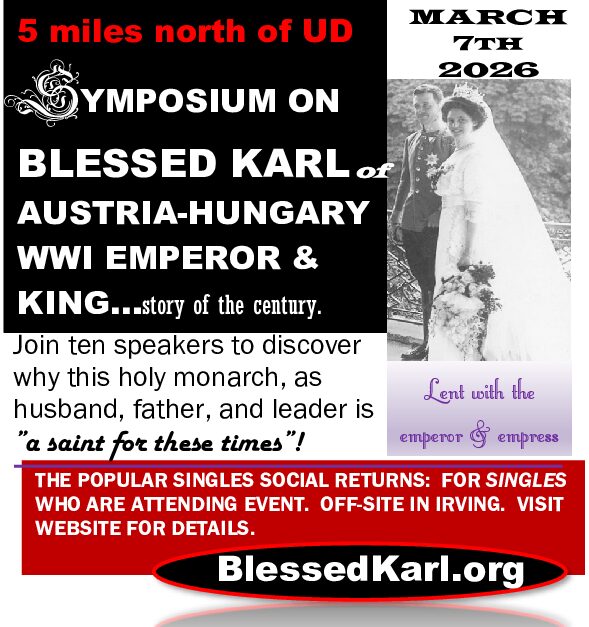
How human understanding is enhanced by the liberal arts and sciences.
When someone says the word “science,” your mind is probably filled with images of lab coats, chalk boards, test tubes and complex formulas. This fixed image of science often initially causes a conflict in one’s mind when trying to fit science into a liberal arts education.
It is also fair to say that people feel inclined toward either one field or the other, with the evident cultural divide between “STEM kids” and those that are more interested in the arts. However when diving into the purpose of education and the nature of liberal arts, we find that the sciences and the arts are married quite well together.
Other than the issue of preference, there is no basis for controversy; science and the liberal arts are fundamentally both oriented toward higher truths and a more complete human understanding. In trying to find what the roles of science and the liberal arts are at the University of Dallas, I found myself in dialogue about the very nature of human understanding and what it means to pursue truth.
Dr. David Andrews, a professor of mathematics and computer science at the University of Dallas, spoke with The Cor Chronicle about his views on the place of science at a liberal arts school.
Andrews first remarked that science has historically been involved in the foundation of the liberal arts, citing astronomy and even music. Dr. Andrews also noted that, “really, science comes out of what’s called natural philosophy”.
As universities have grown from their early predecessors, science has increasingly demanded more education and experience for mastery in its fields. Dr Andrews’ remarks about how a full education in all sciences and liberal arts is becoming increasingly less feasible.
Even though it’s challenging, Dr. Andrews maintains that scientific inquiry is still crucial to the liberal arts. He describes the benefits of UD’s lab science requirement, in its ability to have students “really go and interact with the world” and explained how labs “engender that dialogue with nature”.
Dr. Andrews went on to comment about the scientific view of liberal arts, saying that “It is important to understand ourselves to make scientific inquiry fruitful. … If we misunderstand ourselves then we will misunderstand the world.”
Dr. Chad Engelland, a professor of philosophy, spoke in an interview with The Chronicle next.. Engelland stressed the ways that science fits in a liberal arts education and how science helps further understanding the liberal arts.
Dr. Engelland first clarified what we meant by liberal learning and said, “the sciences are essential to liberal learning, which is learning that is undertaken for its own sake as opposed to servile learning which is done for the sake of merely practical advantage.” In seeing science as contemplative about the truths of the world that we live in, we can see that it is an essential part of a liberal education.
He stresses this view of education, noting that “The liberal arts are those things that we pursue because they enlarge the soul and open us to truths that transfigure and ennoble us. [They are things] that are good to know just because they’re good to know.” Science not only has a role in that, but is foundationally oriented towards those truths that invoke our soul.
To speak more to the nature of science he said, “Science is not simply a matter of manipulating the world through technology, but most fundamentally science is a matter of understanding the structure and causes of the world.”
To connect the liberal arts and sciences artfully, we must not see them as abstracted fields, but as continuations of human understanding. Much like how Andrews had much to say about how great scientists start with an understanding of their humanity, Engelland had significant remarks about seeing humanity in scientific investigation:
“The way to see the connection between liberal learning and the scientific enterprise is to remind ourselves that science itself is a human achievement, and so it requires the very powers and capacities that are distinctly human,” Engelland said. “All of the truths about the world that science discovers and shares are also truths that testify to the uniqueness of the human being.”
Engelland concluded and said that, “What fundamentally unites the whole enterprise is a joint inquiry into truth and its causes.”
